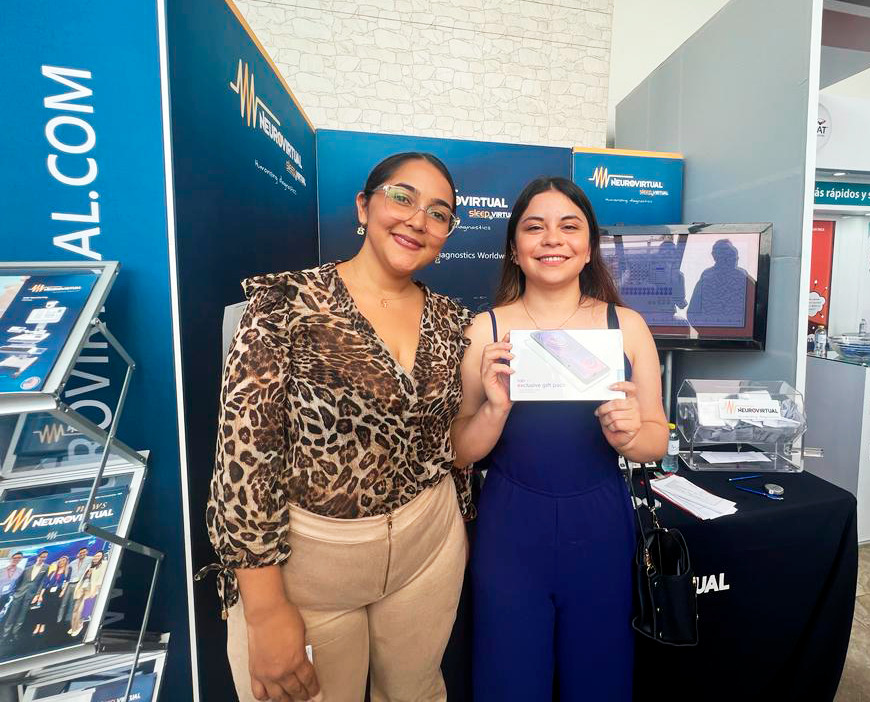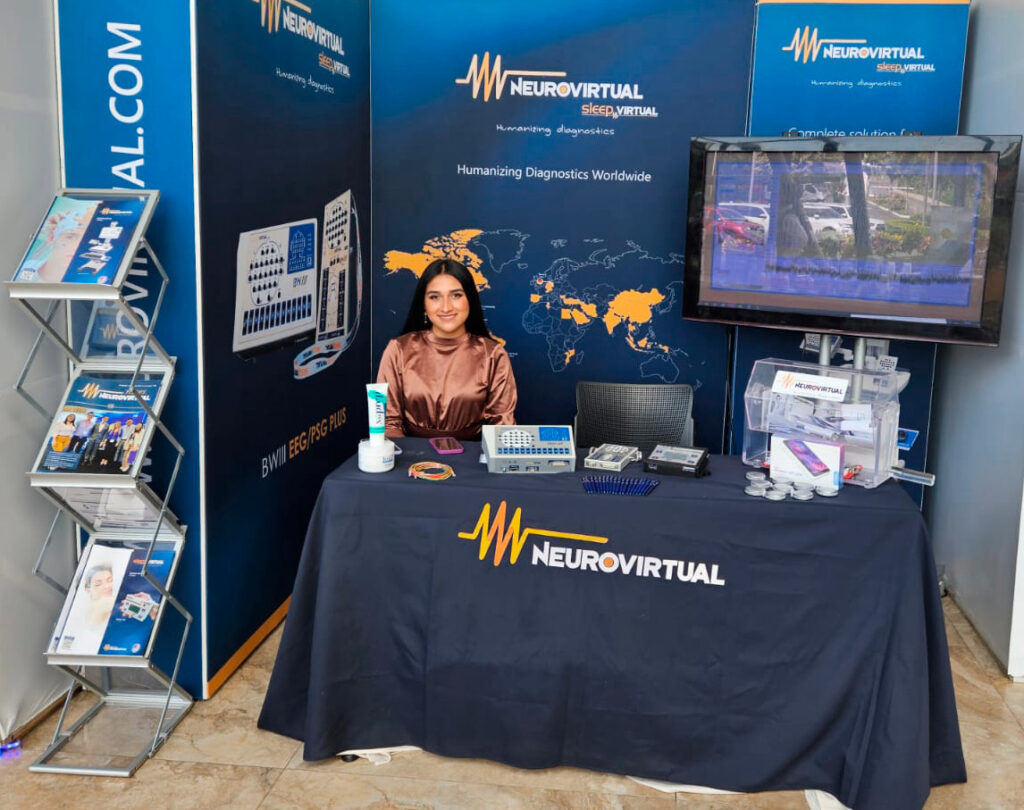From July 27th to 29th, 2023, the city of Pereira played host to a medically significant congress: The Congress of the Colombian League against Epilepsy (LCE), under the inspiring motto “Walking towards a comprehensive approach to the management of Refractory Epilepsy and the Epileptic State”. This event successfully brought together globally renowned medical experts, including neurologists, researchers, and healthcare professionals, with the goal of exploring and sharing the latest progress in diagnosis, treatment, and handling of these complex neurological conditions.
Through keynote lectures and discussion sessions, the congress aimed to enhance understanding and foster collaboration towards effective solutions for individuals facing refractory epilepsy and the epileptic state.
The Neurovirtual team, represented by Katerin Laverde and Angie Medellín, played a pivotal role in the congress by showcasing their flagship products: the BWIII PSG PLUS and the BWMINI EEG. These devices, incorporating cutting-edge technology, underscore Neurovirtual’s commitment to continuous improvement and innovation in patient care for epilepsy.
An important highlight during the congress was the participation of distinguished international speakers, whose renown in the epilepsy field is unparalleled. Among these prominent experts were Dr. Eugen Trinka, Dr. Samuel Wiebe, Dr. Clio Rubinos, Dr. Fernando Cedes, Dr. Roberto Caraballo, and Dr. Isabella Meira, among others. These luminaries shared their knowledge, experiences, and innovative approaches in managing refractory epilepsy and the epileptic state.
The congress, centered on comprehensive management of refractory epilepsy and the epileptic state, emerged as a vital convergence point for experts from Latin America and various parts of the world in the field of neurology. Discussions on the latest advancements in diagnosis, treatment, and handling of these conditions, coupled with global collaboration among physicians and healthcare professionals, infused hope into those facing these challenging circumstances. Additionally, it paved the way towards a promising horizon marked by improved control and enhanced quality of life for patients affected by epilepsy.



